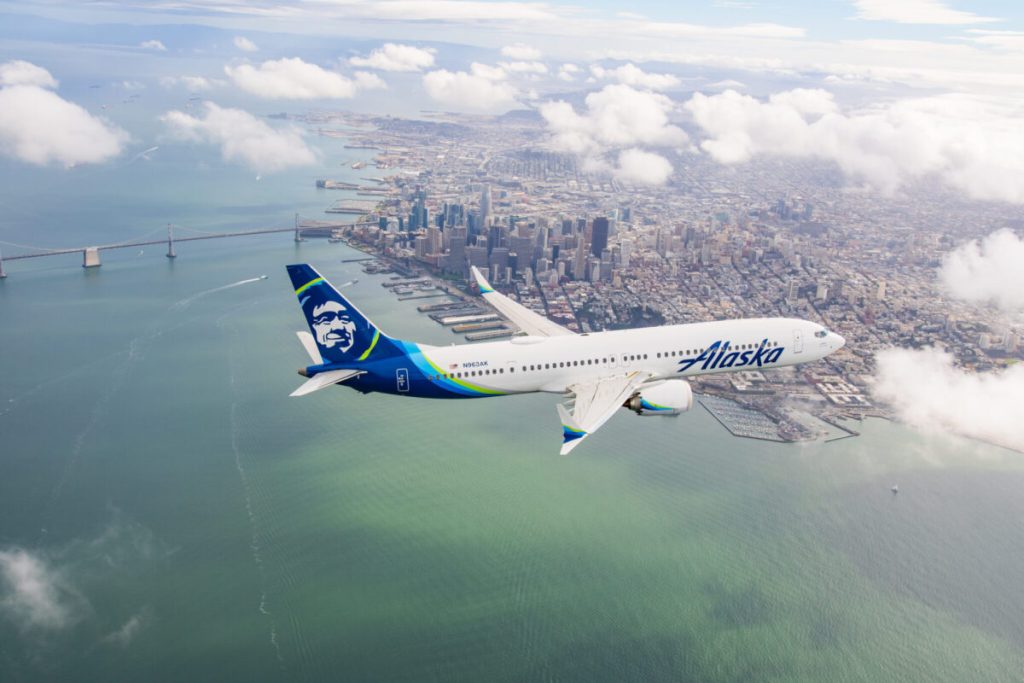Alaska Airlines experienced an uptick in travel demand despite the grounding of the Max 9 aircraft. The carrier saw a full recovery of business travel, which helped offset the impact of the grounding on its operations. Had it not been for the grounding, Alaska Airlines would have reported a small profit of $5 million in the first quarter. Business revenues grew by 22%, with tech companies driving the gains. Revenue from tech companies was up 50% compared to the same time last year, showing significant improvement for the carrier. Managed corporate revenue has fully recovered to 2019 levels, while tech revenue is approximately 85% recovered. The surge in business travel is expected to continue into the second quarter.
Alaska Airlines, similar to larger carriers like American, Delta, and United, has been benefiting from high demand for premium seats. First- and premium-class revenues were up by 4% and 11% respectively. The carrier is committed to further refining its premium strategy across products and markets to enhance the premium guest experience. As the summer travel season approaches, Alaska Airlines is seeing encouraging bookings in the second quarter and expects to see profitable growth during that time. The carrier continues to focus on building on its premium guest experience to meet the preferences of its guests and loyalty members.
Despite the positive outlook, Alaska Airlines has had to rethink its fleet plans due to Boeing delivery delays. The carrier is increasing the utilization rates of its older mainline aircraft and pushing back the retirement of some of those planes to make up for the delays. Additionally, capacity has been increased on regional subsidiary Horizon Air and SkyWest to offset the impact of the delays. Alaska Airlines primarily operates a fleet of 737 aircraft and received $162 million in cash compensation for the Max 9 grounding, which lasted nearly one month. Alaska CEO Ben Minicucci emphasized the importance of Boeing to the carrier, the industry, and the country, stating that the company needs Boeing to be a leader in airplane manufacturing.
Alaska Airlines’ first-quarter results were relatively unaffected by the Max 9 grounding, with the carrier experiencing an uptick in travel demand driven by a full recovery of business travel. Despite the grounding of the Max 9 prompting Alaska Airlines to cancel thousands of flights in January, the carrier reported a net loss but would have achieved a small profit of $5 million without the grounding. The first quarter is typically challenging for airlines, but Alaska Airlines saw a 22% growth in business revenues, with tech companies contributing significantly to the gains. The carrier anticipates that the surge in business travel will continue into the second quarter and is preparing for profitable growth during the summer travel season.
Alaska Airlines has been capitalizing on high demand for premium seats, with first- and premium-class revenues up by 4% and 11% respectively. The carrier is focused on enhancing the premium guest experience and is seeing encouraging bookings for the second quarter. Boeing delivery delays have impacted Alaska Airlines’ capacity plans, leading to the increased utilization of older mainline aircraft and capacity enhancements on regional subsidiaries to make up for the delays. Despite challenges, Alaska Airlines received cash compensation for the Max 9 grounding and emphasized the importance of Boeing in the aviation industry. The carrier remains committed to refining its premium strategy and delivering a superior guest experience to meet the evolving preferences of its guests and loyalty members.


